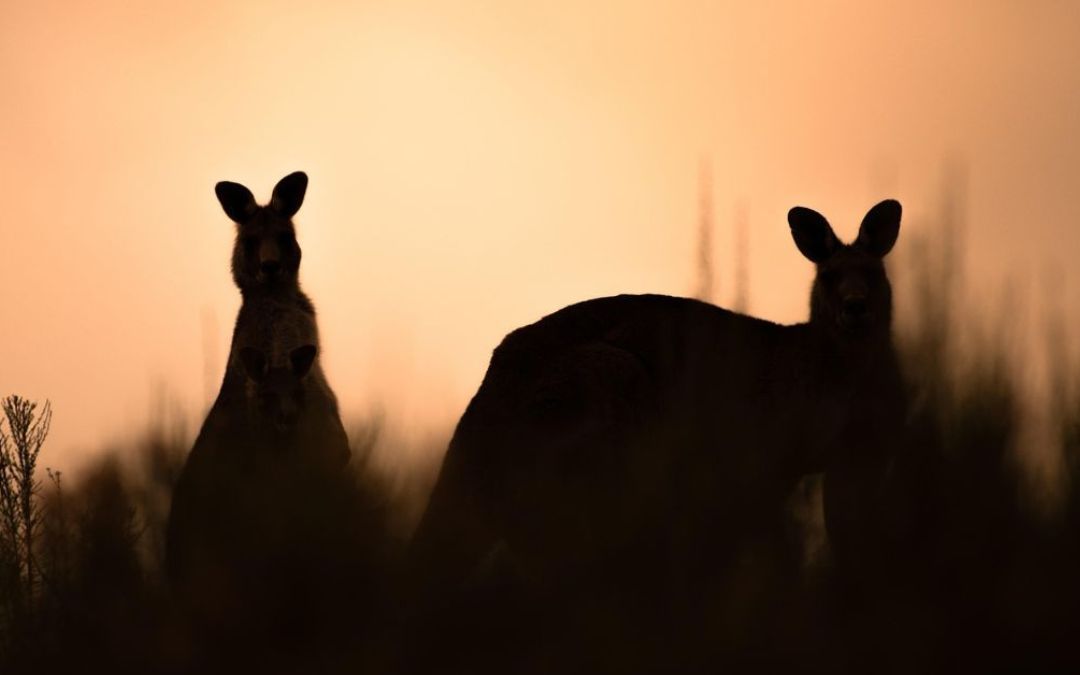Virtual fencing to prevent wildlife roadkill: promising technology?

Virtual fencing to prevent wildlife roadkill: promising technology?
Every year, countless native animals are killed on Victorian roads, including wallabies, wombats, echidnas, koalas and kangaroos. Roadkill is not only a tragic loss for biodiversity, it can be a serious danger for drivers. Perhaps the greatest risk is of hitting a large feral deer: their size presents a real possibility of injuries to vehicle occupants in a collision. In the search for solutions, virtual fencing has emerged as a new and interesting technology aimed at reducing wildlife-vehicle collisions. But how effective is it – and is it a possible solution?
How it works
Virtual fencing involves installing roadside posts (like the reflective white ones you see on highways or country roads) that are fitted with a device that emits light and sound signals when they detect an approaching vehicle, usually using motion or headlight sensors. These signals are designed to startle or alert animals near the roadside, encouraging them to move away before a car passes. Unlike traditional fences, there are no physical barriers.
Trials in Victoria
Several virtual fencing trials have been conducted across Victoria over the past few years.
Manningham Council have installed virtual fencing along Jumping Creek Road in Wonga Park, an area where kangaroos and other wildlife are often struck trying to cross the road to follow the creek upstream. The project is testing the technology’s effectiveness in a peri-urban area, with early signs pointing to a reduction in roadkill along targeted stretches. Frankston City Council have installed virtual fencing along roads near the Langwarrin Flora & Fauna Reserve which they say is aimed at protecting black wallabies and improving road safety.
Virtual fences are being used along a road running inland from the Great Ocean Road near Anglesea, where a local wildlife rescuer says they have more than halved the number of roos and wallabies being hit and killed, as well as reducing the number of echidnas and birds being hit. The results are far less convincing on Phillip Island though, after a 3-year trial found no roadkill reduction on wallabies and possums.
In Victoria’s high country, virtual fences are being used by the state government to reduce the risk to vehicles from deer and other wildlife crossing roads at night.
Benefits
Virtual fencing is relatively easy to install and doesn’t require major changes to the landscape. It’s less intrusive than traditional fencing, which can disrupt wildlife movement corridors. It can also be a good option in areas where fencing isn’t feasible due to terrain, cost or conservation concerns.
Drawbacks
There are still questions about long-term effectiveness and more research is needed. Some animals may become used to the signals, reducing their impact over time. The devices also require ongoing maintenance and monitoring, which can be a challenge for cash-strapped councils or other land managers. And while virtual fencing might work well for some species, it may be less effective for others—particularly nocturnal animals or those less responsive to light and sound.
Alarmingly, some virtual fence posts with flashing lights are being mistaken for speed cameras and vandalised.
Just a piece of the puzzle
Virtual fencing isn’t a silver bullet, but it could play a useful role as part of a broader roadkill mitigation strategy. Used alongside speed reductions, driver awareness signage and targeted habitat preservation, it offers a tool to help protect our precious native wildlife on Victorian roads.
Written by Jen Willis
